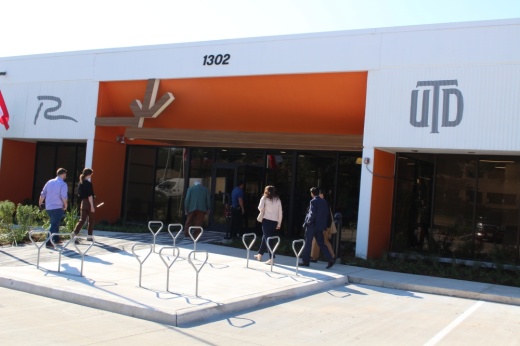The university and its private and university partners received $30 million over three years to help train a future workforce, commercialize new battery technologies and manufacturing processes, and enhance the national availability of lithium and other necessary battery materials.
In a nutshell
The funds will be used to help establish a prototype campus—to be located within the 1,200-acre Richardson Innovation Quarter—called the Energy Storage Systems Campus, said Joseph J. Pancrazio, vice president of research and innovation at UT Dallas. He added he hopes the campus will be part of a growth in energy storage solutions in North Texas.
Batteries are at an intersection with national defense and a supply chain, Pancrazio said, adding there is a need for an onshore capability to bring the next generation of products forward.
“We are fully dependent on the rechargeable nature of these ... products,” Pancrazio said. “With lithium ion batteries, we faced some struggles with the availability of the technology that was exacerbated by the pandemic.”
Along with a research capacity, Pancrazio said the collaboration is meant to create a midscale manufacturing pipeline for future battery technologies.
“That’s what we’re aiming to establish in the North Texas region: a concentration of small business, venture development and our research institution, with its expertise ... in energy storage technologies, to create an ecosystem that will become a defining part of our region.” Pancrazio said.
There is also a need for new battery technologies when it comes to maximizing renewable energy sources, Pancrazio said.
Quote of note
“As we think about making use of renewable energy, there are times where those renewable energy sources are not available,” Pancrazio said. “We need energy storage solutions that are probably different than lithium ion battery technology to maximize our use of renewables and increase the range of sources for electricity in the future.”
Dig deeper
Researchers from the university will collaborate with LEAP Manufacturing; Associated Universities Inc.; the University of California, Berkeley; and the University of Chicago. Per the news release, the project will utilize over $200 million in private capital.
Pancrazio said researchers are looking to establish a manufacturing capability and research space for small businesses and faculty in the Innovation Quarter that allows them to test designs, materials and chemistries in different formats. For workforce development, the university will work with local community colleges to train workers based on a study projecting a need for nearly 130,000 battery energy storage industry workers by 2030.





